Abstract
Excised embryonic bean axes (Phaseolus vulgaris, var. White Marrowfat) rapidly metabolize 2-14C-(±)-abscisic acid to two compounds, M-1 and M-2, which have very low growth-inhibitory activity. Chemical tests indicate the M-1 and M-2 are not previously described abscisic acid metabolites. M-2 accumulates in the axes and evidence is presented for the hypothesis that abscisic acid → M-1 → M-2. Zeatin, which partially reverses the abscisic acid-mediated growth inhibition of axes, neither decreases abscisic acid uptake nor causes any major changes in its metabolism. It was observed that axes transferred from abscisic acid-containing solutions to buffer resume control rates of fresh weight increase while still containing considerable quantities of abscisic acid.
Full text
PDF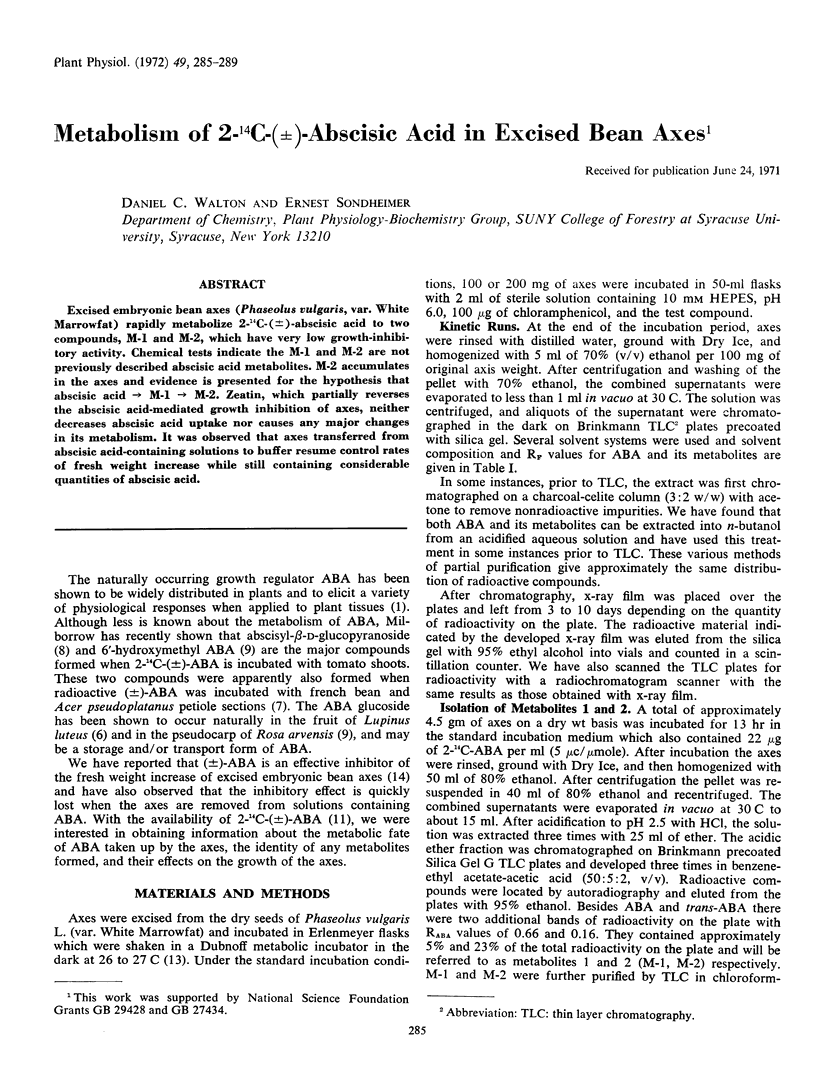
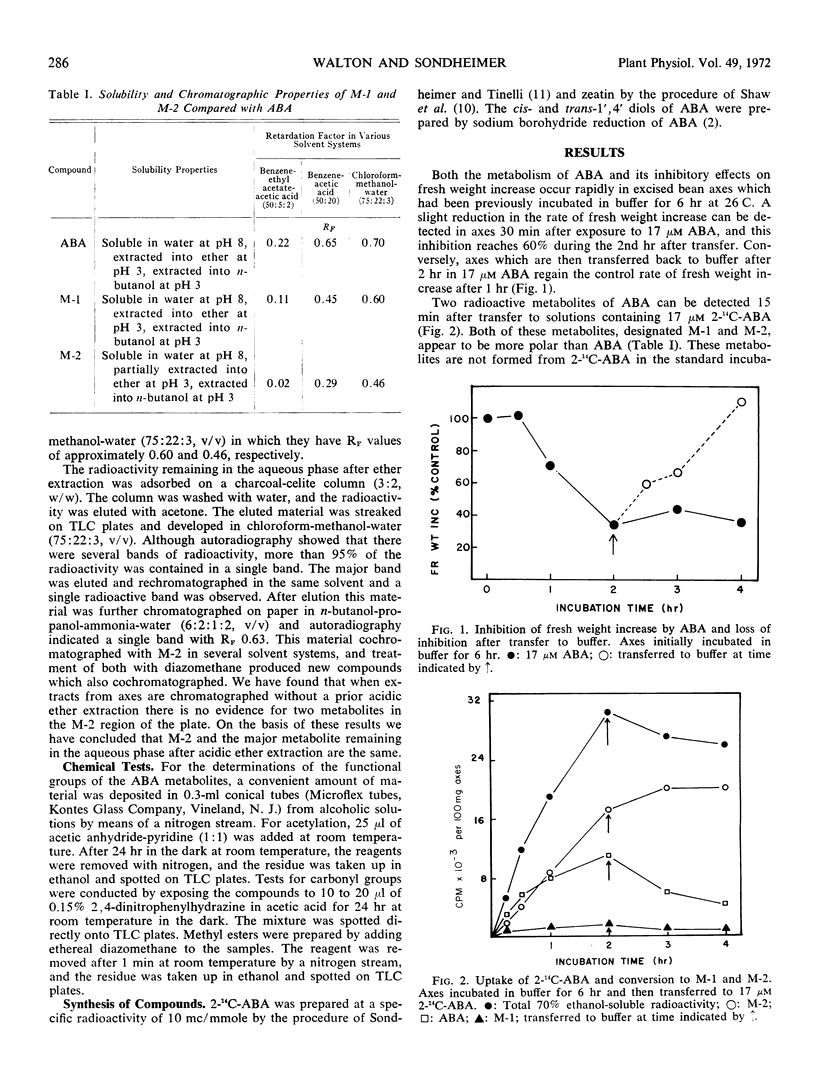
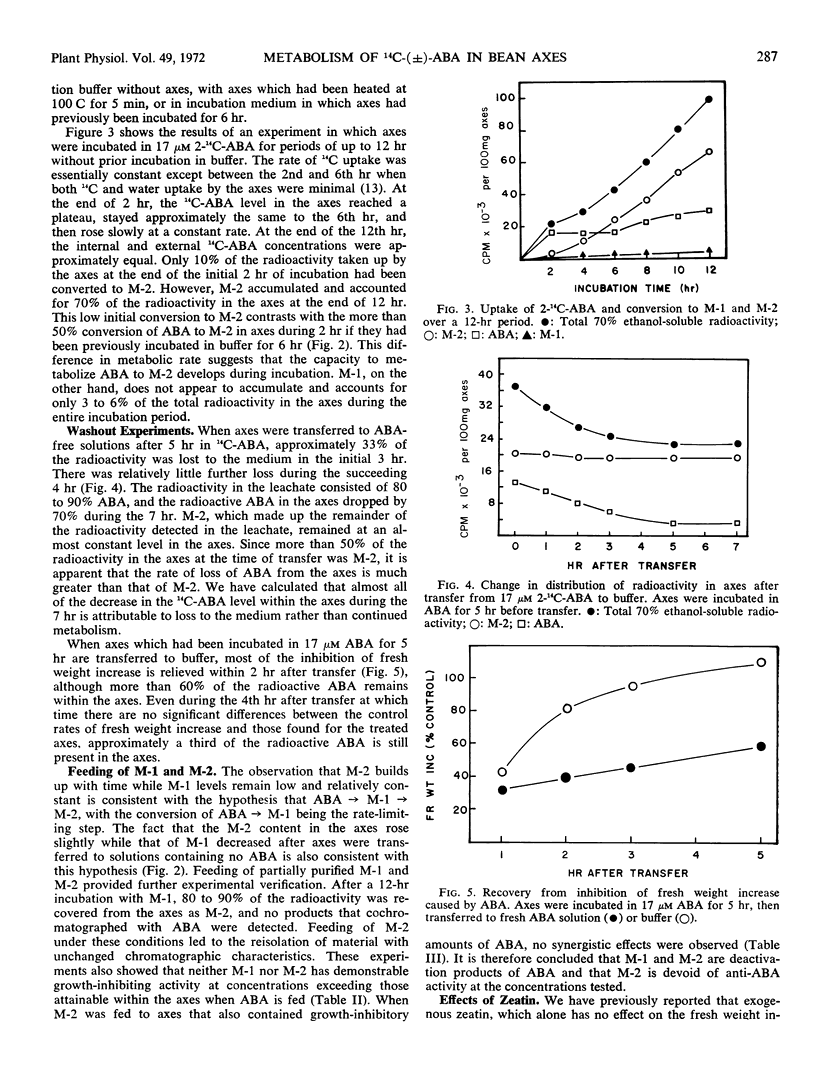
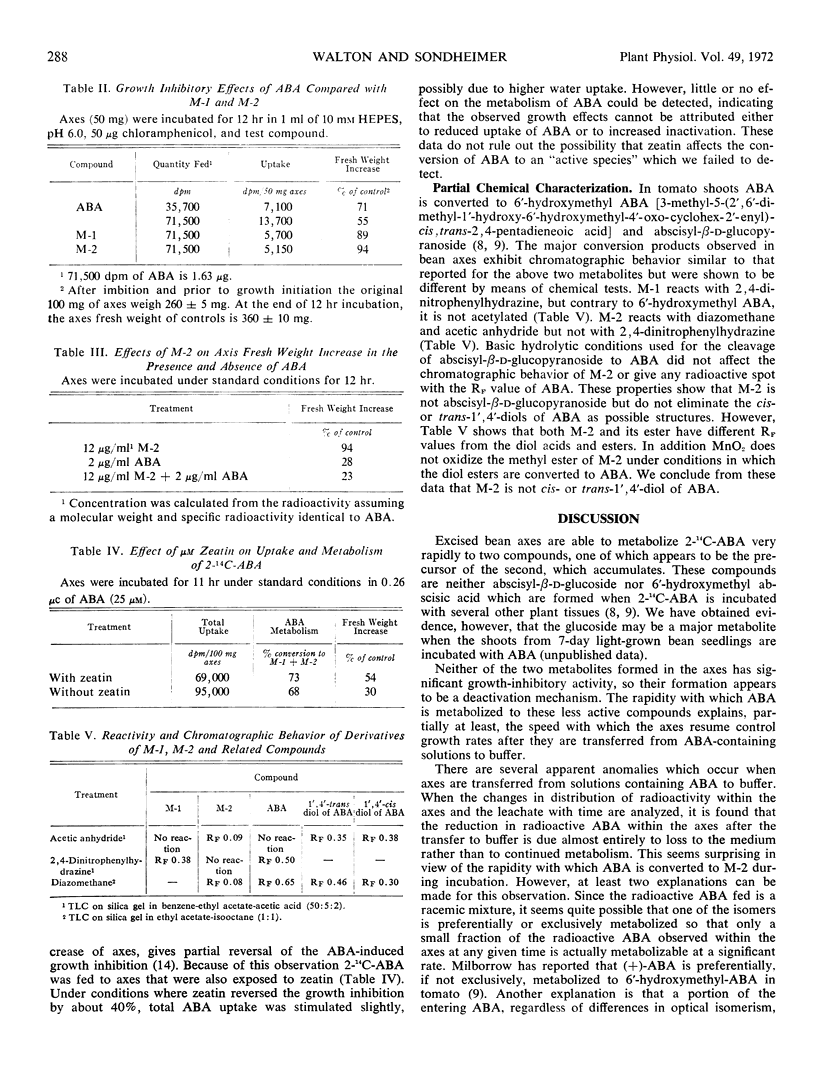
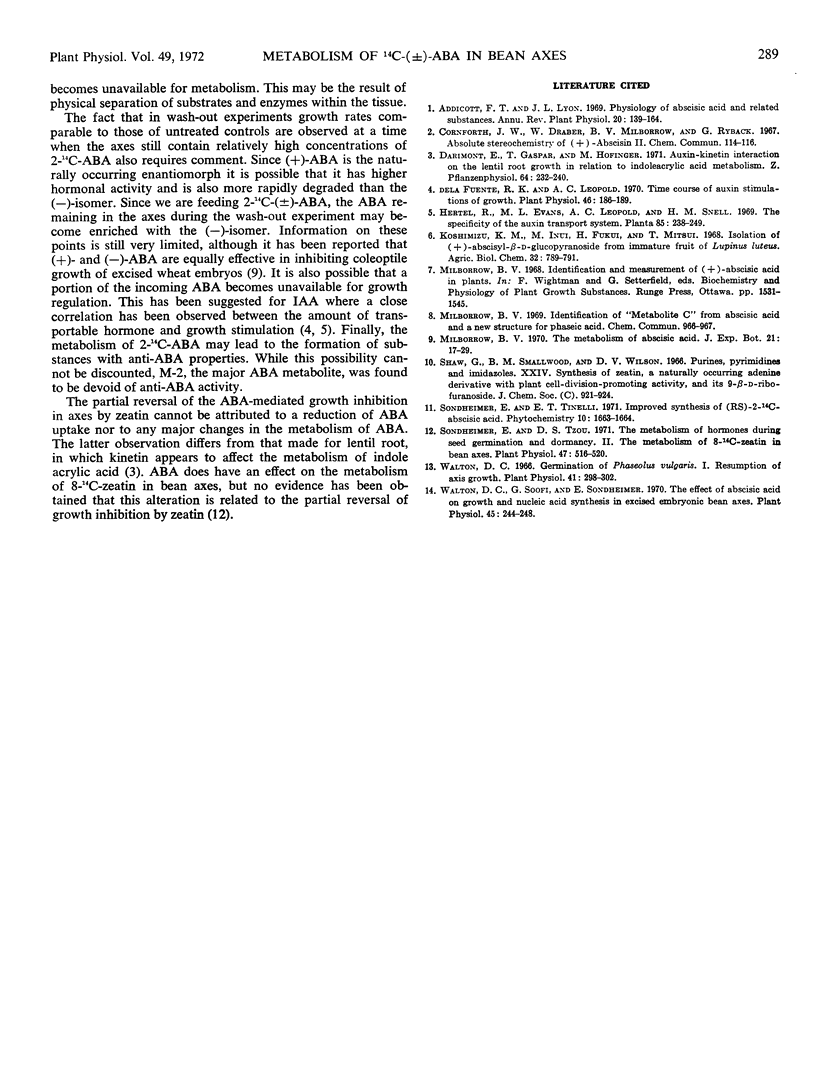
Selected References
These references are in PubMed. This may not be the complete list of references from this article.
- Dela Fuente R. K., Leopold A. C. Time course of auxin stimulations of growth. Plant Physiol. 1970 Aug;46(2):186–189. doi: 10.1104/pp.46.2.186. [DOI] [PMC free article] [PubMed] [Google Scholar]
- Sondheimer E., Tzou D. S. The Metabolism of Hormones during Seed Germination and Dormancy: II. The Metabolism of 8-C-Zeatin in Bean Axes. Plant Physiol. 1971 Apr;47(4):516–520. doi: 10.1104/pp.47.4.516. [DOI] [PMC free article] [PubMed] [Google Scholar]
- Sondheimer E., Walton D. C. Structure-activity correlations with compounds related to abscisic acid. Plant Physiol. 1970 Mar;45(3):244–248. doi: 10.1104/pp.45.3.244. [DOI] [PMC free article] [PubMed] [Google Scholar]
- Walton D. C. Germination of phaseolus vulgaris I. Resumption of axis growth. Plant Physiol. 1966 Feb;41(2):298–302. doi: 10.1104/pp.41.2.298. [DOI] [PMC free article] [PubMed] [Google Scholar]


